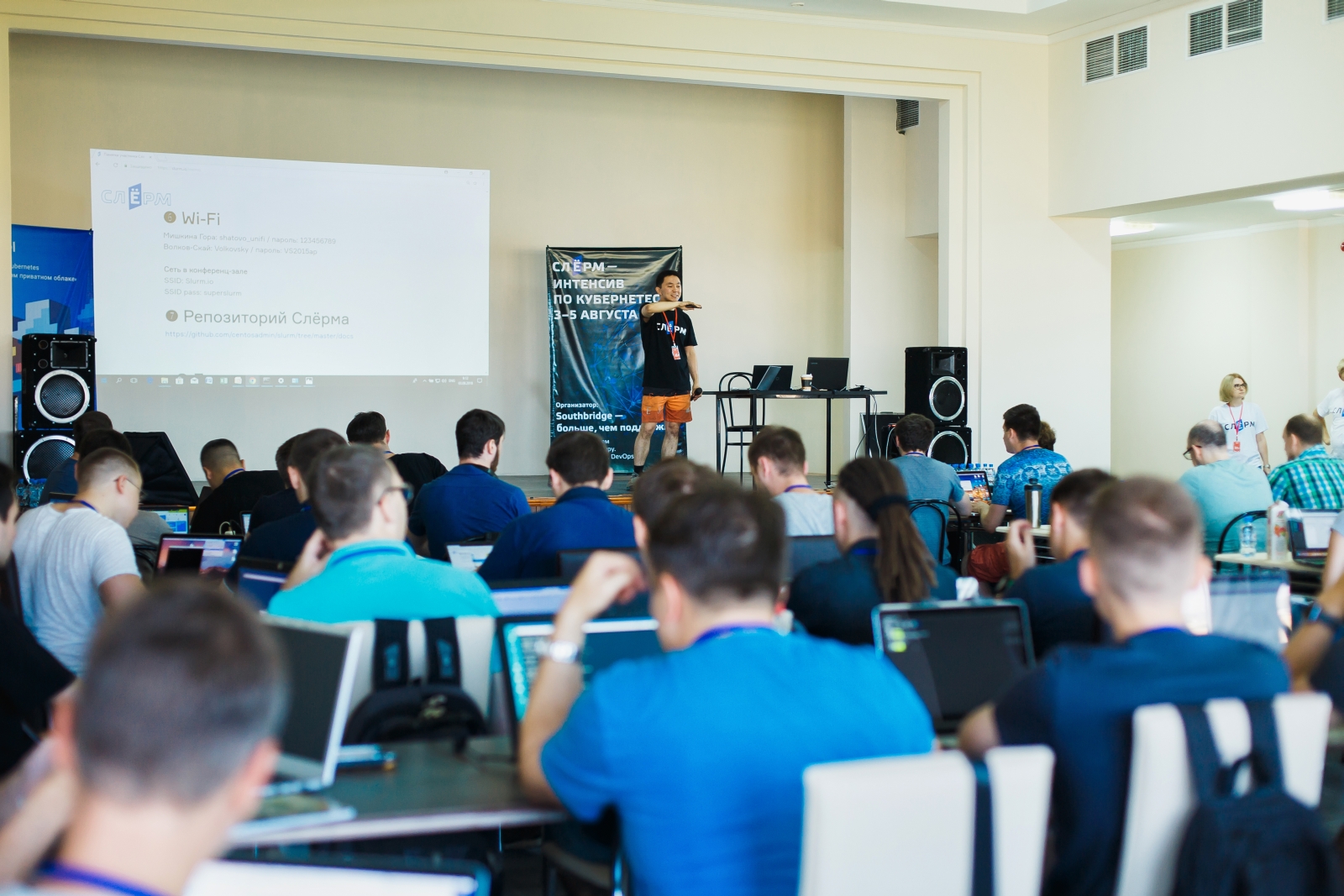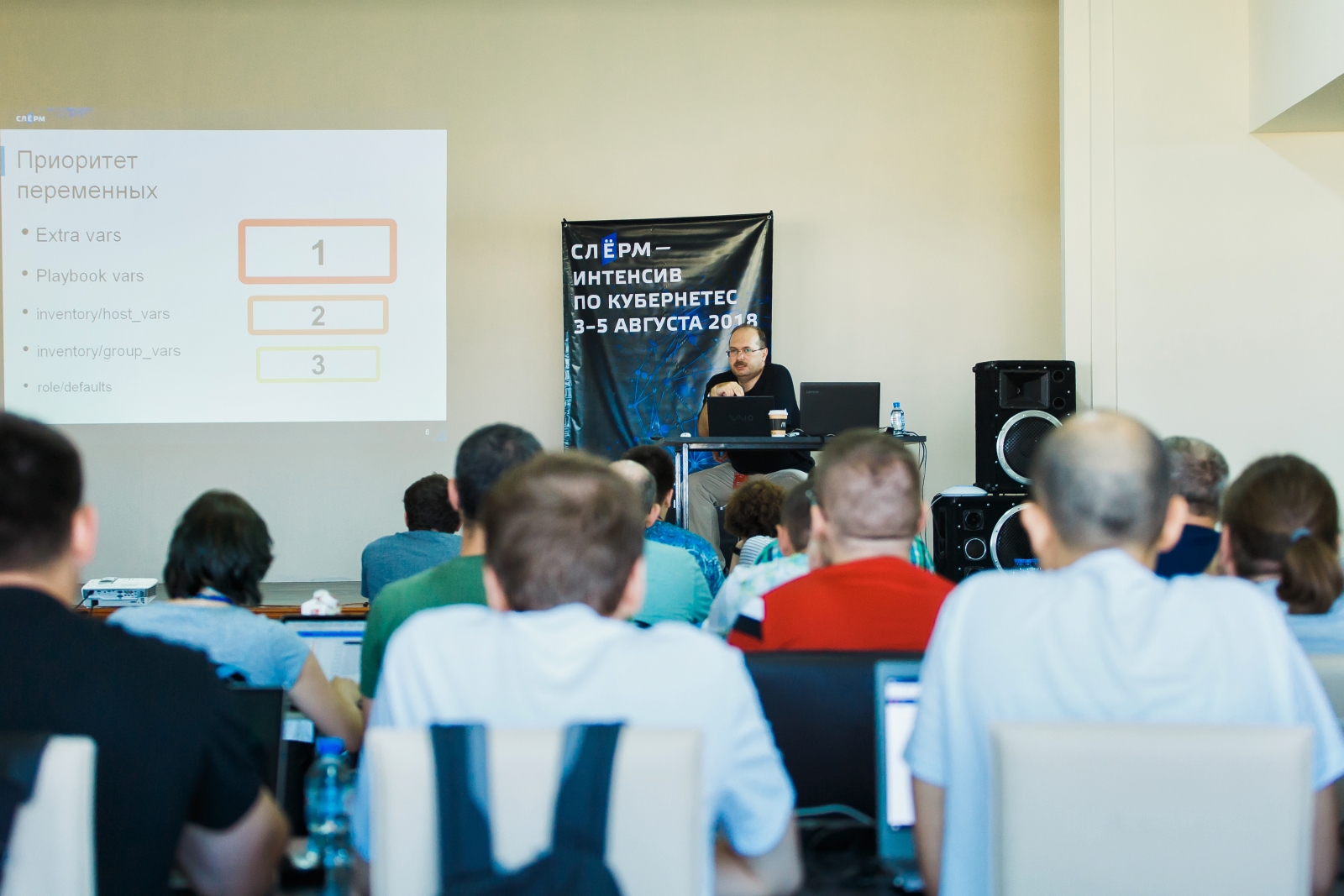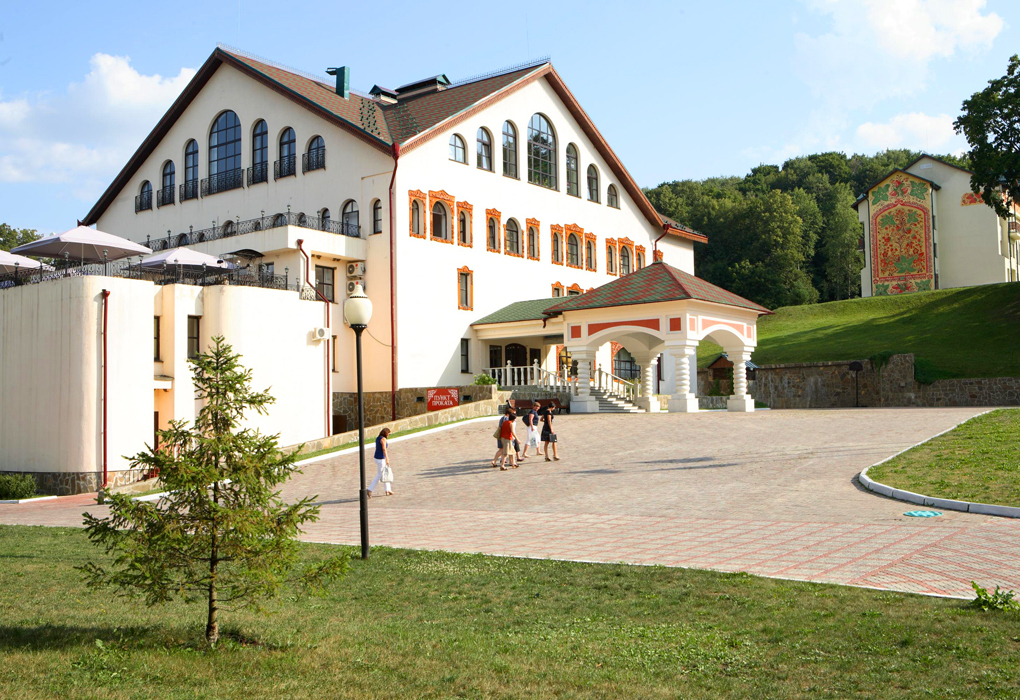Come study classical administration: regulations, tools, scripts Southbridge
For 10 years, Southbridge has created a work standard that allows one administrator to support 150 servers, quickly carry out initial configuration, easily transfer the project between administrators and groups, see what the night attendants did, quickly get up to speed after the holidays, and, of course, provide customer reliability and security infrastructure.
From October 22 to 24, Southbridge spends intensively for system administrators, where he will show his approaches, regulations, tools, instructions and scripts.

RedSlerm is essentially a collection of materials for training a new Southbridge employee.
Mastering the approach to administration based on unification and standardization is useful even for a novice administrator.
All that we can, we practice in practice.
RedSlerm (October 22 - 24) is a cure for red eyes for those who want to support dozens and hundreds of servers and sleep well at night.

The administrator will be able to:
- easy to manage the "zoo";
- build a database of solutions and use it;
- quickly navigate in the settings of projects;
- set up proactive monitoring to detect problems in advance.
Head unifies
work with updates, access, monitoring, data storage and hardware, and as a result will be able to prepare a specialist for 1 month internship, who will pick up any existing project.
Occupation Topics:
Topic 1: Work as Southbridge. The main regulations
- Management in the company. How business processes
are organized - Standards in the company. How to learn to quickly solve complex problems and reduce the influence of the human factor
- Working with Redmine. Our developments that improve service quality and security
- Rules and standards for working with configuration management systems (Ansible / Slack)
Topic # 2: Monitoring. Integrated approach
- Local monitoring Monit. Scope, device, configuration and operation
- Remote monitoring: Zabbix. Project creation, automatic templates, monitoring features
- Our scripts. Overview of Southbridge automation and monitoring scripts, rules of operation
Topic 3: Work as Southbridge. Technical Regulations
- Basics of setting up dedicated servers and tuning for maximum performance
- Basics of working with OpenVZ / KVM. Installation, configuration, operation
- Working with hardware RAID controllers
- Practice. Setting up and tuning servers using Ansible
Theme number 4: Databases. Southbridge Experience and Practices
- Accepted Customization Standards
- MySQL. Installation, configuration, tuning, applying changes without downtime
- MySQL. Configure Master-Slave replication with minimal downtime
- PostgreSQL. Installation and architecture basics
- PostgreSQL. Tuning, tuning, replication, backups
- Redis. Installation and architecture fundamentals
- Redis. Setup, tuning, replication, backups
- Practice
Topic # 5: Web servers. Experience and practice of Southbridge
- Accepted standards, automation scripts and rules for writing configs
- Setting specific parameters for php
- Let's Encrypt. We
get free production-ready certificates - Receipt and configuration of an SSL certificate (A +), features of application in production
Topic 6: PostgreSQL Database: Clustering and Restoration
- PostgreSQL: Pacemaker Based Clustering
- PostgreSQL: Restoring a State to a Specified Point in Time
- Practice
Topic 7: 1C-Bitrix web servers: configuration features
- Load testing tools and their application in practice
- Highload Bitrix projects from the server administrator's point of view. Southbridge experience
Topic number 8: Server and project security. Southbridge Experience
- SSH Protection. Use OTP to access servers. Scripts and their use
- Protecting the site from DDoS attacks
- Scripts for protection against http flood, port scanning, package integrity checking
- Software verification scripts for vulnerabilities and automatic updating
Topic 9: Version Control Systems. Working with Git and Gitlab
- Install and configure Gitlab. Operating experience
- Practice of working with git (bases, useful commands)
- Git for system administrators: etckeeper
Topic 10: Build and manage packages on CentOS
- Package building standards, features and rules
- Practice building packages (rpmbuild, nginx, building bash with a patch)
Topic 11: Backup and restore data
- Backup system device
- Restore backups using rdiff-backup. Theory and practice
Theme number 12: Fault tolerance and scaling of projects. Monolith vs microservice
- Device monolithic projects
- Fault tolerance and scaling of monolithic projects
- Device microservice projects
- Fault tolerance and scaling of microservice projects (Docker + Kubernetes)
- Fault tolerance solutions for small projects. DNS balancing, VRRP
Webinar
It happens that questions arise after training. We will collect them in the working chat, and on November 5, the speakers will answer them during the webinar.
Where will pass
RedSlerm will be held in the country hotel "Tsargrad Spas-Teshilovo". This is a 5 star hotel with a rating of 8.5 on Bucking.

How much is
Live participation is 25 000 ₽ (Standard tariff, 2 people in a standard room) or 35 000 ₽ (Introvert tariff, 1 person in a junior suite).
If it fails to come, participation online costs 15 000 ₽. It includes access to the broadcast and its recording, access to the RedSlerm telegram channel, to the RedSlerom git, to the cloud for classes, practical tasks, as well as assistance with their implementation and every evening informal communication with the speakers during the broadcast.
UPD: pay attention to the price of live participation, it has decreased.
